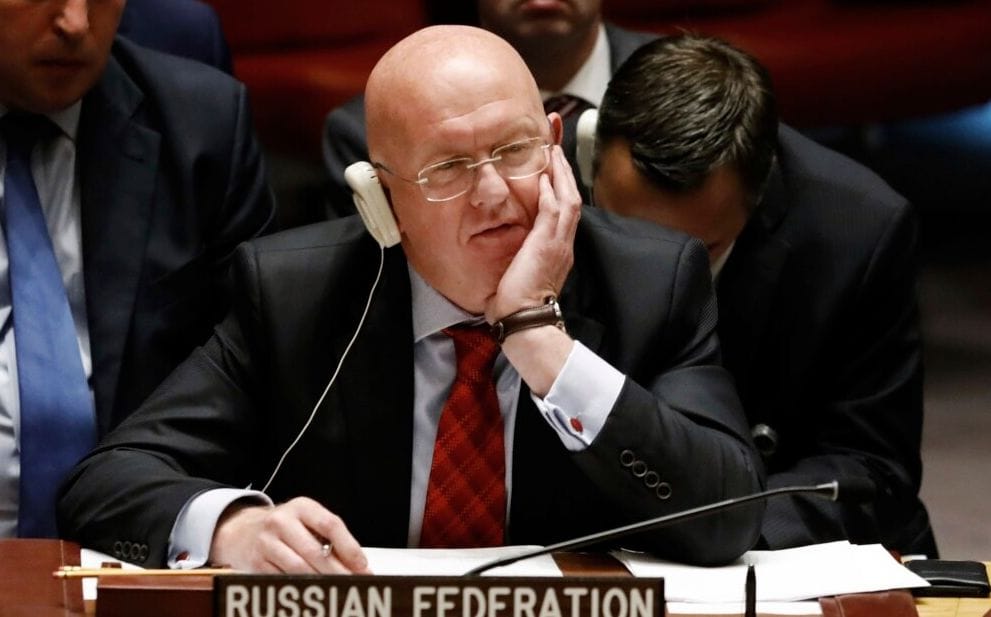
Arab Support For The UNSC Resolution On Gaza Was The Only Reason Why Russia Didn’t Veto It
Russia couldn’t be more pro-Palestinian than the Palestinians’ fellow Arabs themselves since that would violate its policy of principled neutrality.
Many across the world are celebrating the UNSC’s compromise resolution on humanitarian aid to Gaza, which some interpret as a setback for Israel after the US only abstained from the vote instead of vetoing it, but Russia has an altogether different interpretation of events. Permanent Representative Vassily Nebenzia earlier tried to push through an amendment for changing the text to call for “an urgent suspension of hostilities” in place of “creat[ing] the conditions for a sustainable cessation” thereof.
Even though his efforts were ultimately for naught, he didn’t veto the final text but abstained just like the US did, albeit for completely different reasons. In his explanation of the vote, Nebenzia warned that “Washington pushed through a language that actually gave Israel a license to kill Palestinian civilians in Gaza under the pretext of ‘creating conditions for a cessation of hostilities’.” He then added that “this is a tragic moment for the Council.” Here’s what else Russia’s Permanent Representative said:
“This is not a moment of triumph of multilateral diplomacy, but a moment of great dirty blackmail, open disregard on the part of Washington for the suffering of the Palestinians and the aspirations of the global community to put an end to it.
Colleagues, if this document were not supported by a number of Arab states, we certainly would have vetoed it. We note that a number of co-sponsors, including Arab states, have withdrawn their co-sponsorship. But we have always maintained that the Arab world is capable of making its own decisions and taking full responsibility for them. That is the only reason why we have not blocked this document.
But I want to emphasize once again that we strongly disagree with the content of the current OP2 and assume that the responsibility for all possible consequences will fall on those states that gave their consent to this edition, which was pushed through by the US. We cannot subscribe to this.”
In other words, Russia couldn’t be more pro-Palestinian than the Palestinians’ fellow Arabs themselves since that would violate its policy of principled neutrality towards the latest Israeli-Hamas war, hence why it let this Arab-backed resolution pass despite vehemently opposing that particular passage. Vetoing it in spite of the Arab World’s support would have amounted to excessive, unsolicited, and counterproductive partisanship in an issue that’s only of political and humanitarian concern for Russia.
Since nothing of immediate national security significance was at stake even though Foreign Minister Sergey Lavrov earlier warned about how terrorists have a greater chance of exploiting the Palestinian cause the longer that the conflict rages, Moscow abstained from the resolution instead of vetoing it. Observers should remember Nebenzia’s explanation when assessing the real impact of this development in the future since Russia can’t be blamed if it backfires and leads to the killing of more Palestinians.
Andrew Korybko is a Moscow-based American political and a regular contributor to the Sixteenth Council Insights



